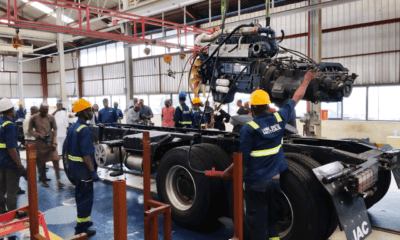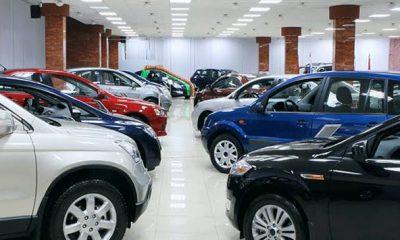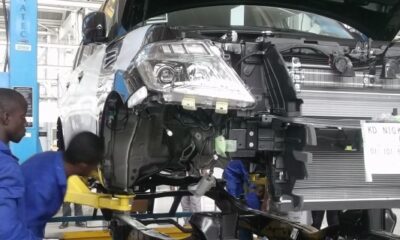Business
Nigeria to begin local manufacturing of vehicle spare parts – NADDC
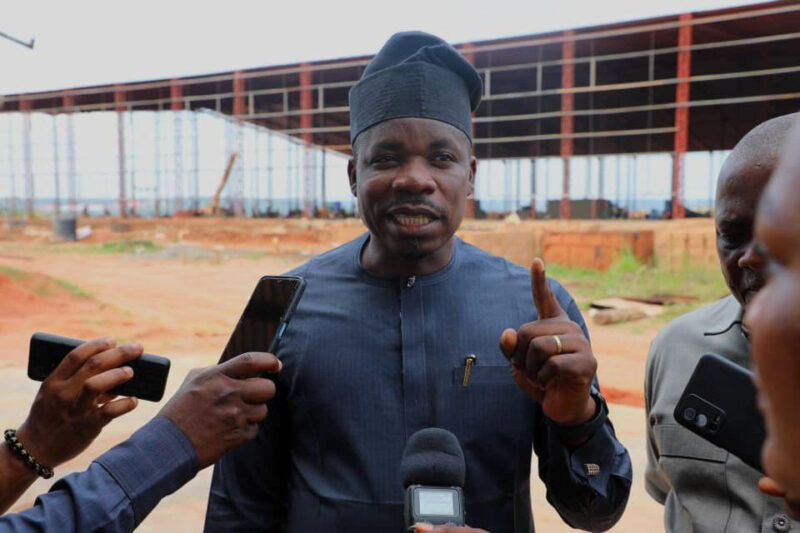
Nigeria to begin local manufacturing of vehicle spare parts – NADDC
The National Automotive Design and Development Council (NADDC) announced it has established the necessary structures and frameworks to begin local production of vehicle spare parts.
This initiative is aimed at reducing Nigeria’s reliance on imports, which currently cost the country $1 billion annually.
The NADDC Director General, Joseph Osanipin, disclosed this during the conclusion of a two-week automotive engineering and software design training held in Abuja organised in partnership with Midas IT Co. of South Korea, focusing on Midas NFX software, a platform for advanced design and analysis.
Speaking on behalf of the DG, the Director of Research Design and Development, Fidelis Achiv, highlighted the council is committed to transforming Nigeria’s automotive industry by increasing the percentage of locally manufactured components in vehicle assembly.
“We are working to achieve a level whereby we can go back to assembling vehicles that have up to 40% locally manufactured components. We have vehicle assemblies in Nigeria but the assembling that is going on is not adding much value to the economy.
“Vehicles that have been assembled come in completely built, and they just remove the tyres, remove the exhaust system, remove the engine, ship them, and come and assemble them here. But we want to transform from that to a level where these vehicles come in unpainted, the welding is done here, some components parts are produced here and the assembly will add more value, and employ more people. We have over 11 million vehicles on our Nigerian roads.
READ ALSO:
- Kidnap kingpin who abducted 20, collected N70m, arrested in Taraba
- Kidnap kingpin who abducted 20, collected N70m, arrested in Taraba
- Obasanjo’s comment on Tinubu mischievous, says Afenifere chief
“Of the over 3,000 parts in a vehicle, if we can leverage on producing just 10 that we can beat our chest, that in the whole world, Nigeria produces these 10 components and they are best, the market is going to be huge. Our economy will change,” he stated.
The training boot camp, which hosted 15 participants, aims to equip engineers with the skills necessary to achieve this vision.
“The essence is to train engineers to design and produce parts, making Nigeria self-sufficient in vehicle parts production,” Achiv explained.
Fostering innovation
- Abdul-Lawal Zubair, Managing Director of FAZSAL Nigeria Limited, encouraged participants to apply their newly acquired skills practically and creatively to address challenges in the automotive industry
“You have not just seen the theory of design but with practicality. Solve the issues for us. There is a reason among all the software for this agency to choose Midas NFX.
“Let them be proud of you. They can call you for advanced training, possibly in South Korea. Don’t just know the software and keep it. Be innovative and give solutions,” he said
- One of the participants, Lukman, expressed gratitude for the opportunity and the exposure to the advanced Midas NFX software.
“This training has widened my level of thinking and reasoning. The software is outstanding for modelling and analysis. We are now more equipped to be creative and contribute to producing what we consume. This software offers a platform for optimizing design and introducing innovative ideas into the market,” he stated.
Nigeria to begin local manufacturing of vehicle spare parts – NADDC
Business
We’re not involved in N40m HxAfrica mortgage scheme – FMBN
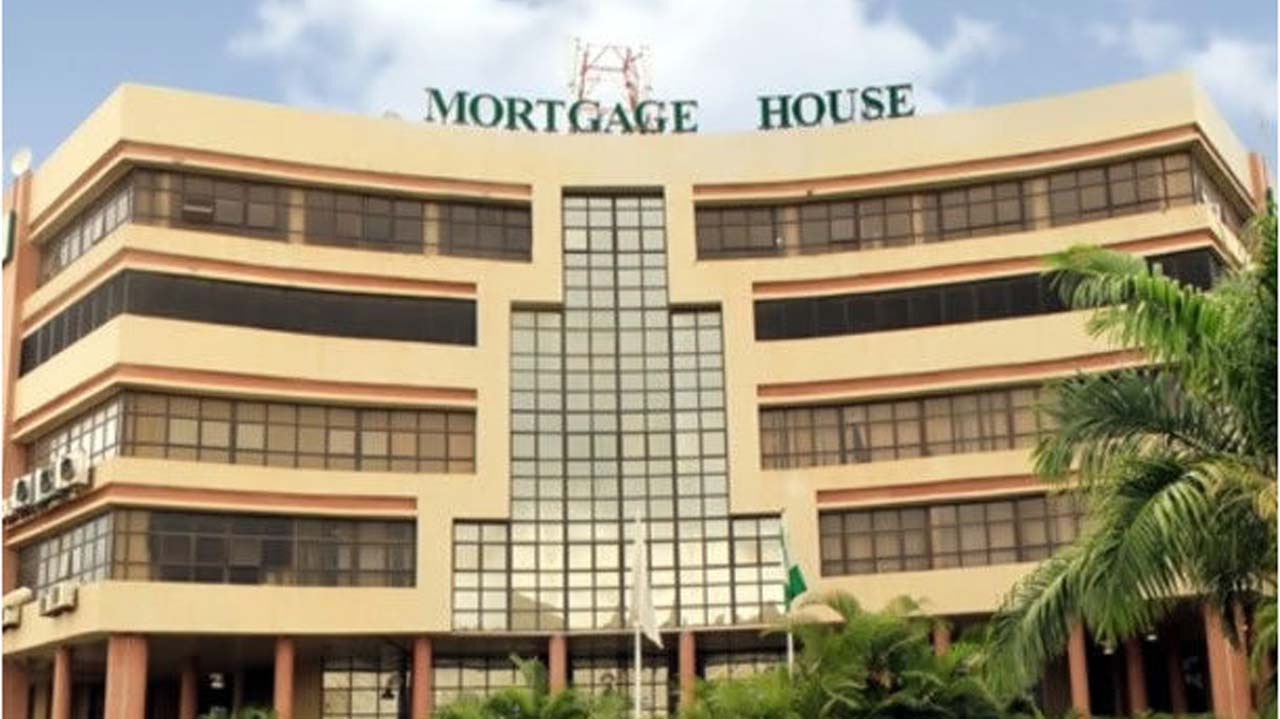
We’re not involved in N40m HxAfrica mortgage scheme – FMBN
By Dada Jackson
The Federal Mortgage Bank of Nigeria (FMBN) has distance itself from claims linking it to a N40 million mortgage pre-financing scheme promoted by Housing Exchange Africa (HXAfrica).
In an official disclaimer issued by Virginia Jang, FMBN’s Group Head of Corporate Communications, it clarified that the bank has no formal partnership or approval arrangement with HXAfrica concerning the alleged scheme.
“The management of the Federal Mortgage Bank of Nigeria wishes to disclaim reports in the media by HXAfrica (Housing Exchange Africa) on a purported N40 million mortgage pre-financing scheme, which referred to FMBN as a partner,” Jang stated
She further explained that while HXAfrica had applied for engagement with the bank, no approvals had been granted, and no formal agreements had been finalized.
Jang emphasized that FMBN remains committed to advancing housing initiatives, including the forthcoming Diaspora Mortgage Scheme, which is being developed in collaboration with the National Diaspora Commission (NIDCOM)
“While the FMBN and NIDCOM remain committed to the roll-out of the Diaspora Mortgage Scheme after obtaining the necessary regulatory approvals, we will endeavour to provide official information and updates on our respective websites and social media handles to prevent the public from being misled,” she added.
The statement also revealed that NIDCOM had issued a similar disclaimer regarding the HXAfrica scheme, urging the public to be cautious of unverified claims.
FMBN assured citizens that details of the official Diaspora Mortgage Scheme would be communicated through authorized channels once regulatory approvals are secured.
The bank reiterated its commitment to delivering credible housing solutions while encouraging the public to rely only on updates from its verified platforms.
Auto
Soludo: Kojo assembly plant will make Anambra auto manufacturing hub
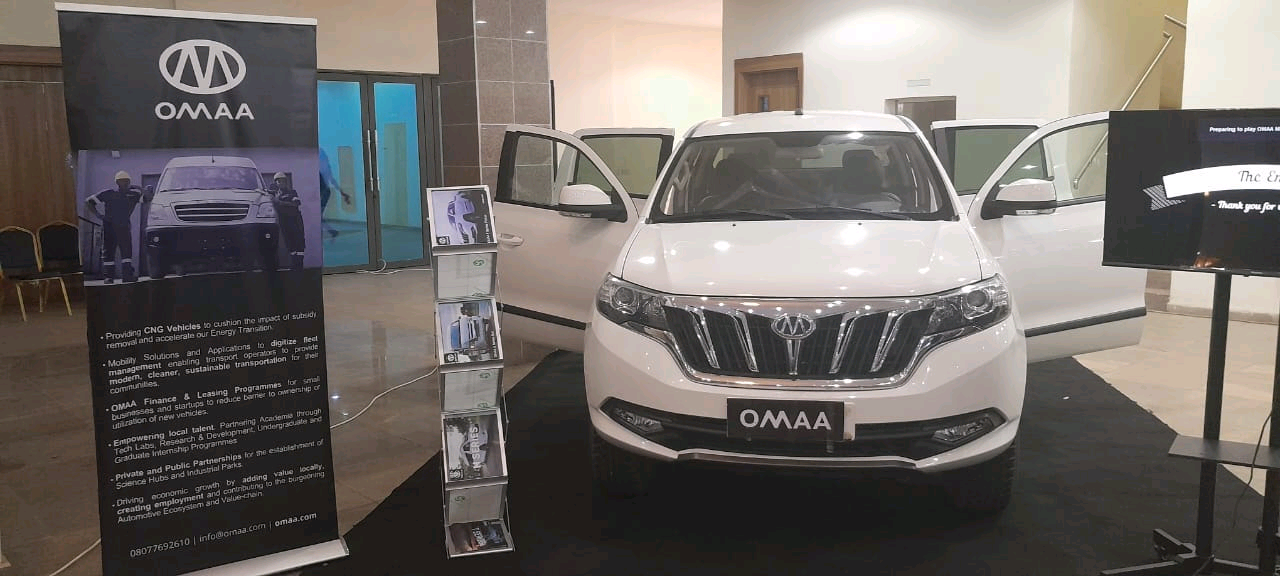
Soludo: Kojo assembly plant will make Anambra auto manufacturing hub
Anambra State Governor, Professor Charles Chukwuma Soludo, has expressed optimism that the new Kojo automotive assembly plant at Umunya along the Enugu-Onitsha Expressway will not only boost the economy of the state but also reposition it as an automotive manufacturing hub.
The assembly plant nearing completion is expected to roll out its first set of vehicles under the Soludo administration soon.
The governor spoke at the just concluded Anambra State Investment Summit (ANINVEST 2.0) with Kojo Motors as one of the official partners and sponsors.
This year’s ANINVEST held under the theme “Changing Gears: Accelerating Anambra’s Economic Transformation”
was organised by the state government as a pivotal event in advancing the collective vision for rapid development of the state’s economy.
Speaking on the sidelines of the summit, Managing Director of OMAA, Chinedu Oguegbu, reiterated the plan of the company to invite Governor Soludo to commission the plant and drive the first locally assembled vehicle out of the Kojo Assembly Plant by the first quarter of 2025.
He said, “His Excellency is very passionate about the Kojo Motors auto assembly plant. He is very eager to see its completion and commencement of assembly of vehicles come to reality.
“I can assure him and the state government that we are doing everything possible to ensure we meet with the governor’s wishes and aspirations.”
The event brought together stakeholders from the various sectors of the local and global economy including industry leaders, development partners, financial institutions and other relevant participants, all united in a commitment to accelerating the economic transformation of Anambra State.
Anambra, according to the state governor, is fast becoming a renewed investors’ destination for different types of money bags rushing to the state to capitalise on the pledged ease of doing business to set up businesses.
“This time around, one of such massive investments is being undertaken by John Ikenna Oguegbu, an indigene of the state and chairman, founder and CEO, Kojo Motors Limited,” Chinedu Oguegbu said.
Last year September, Governor Soludo performed the groundbreaking ceremony of the Kojo Motors auto assembly plant for the local assembly of the OMAA range of gas-powered mini passenger and commercial buses as well as Chinese range of Yutong passenger and commercial buses.
While congratulating John Ikenna Oguegbu, chairman and chief executive of Kojo Motors Limited for bringing his wealth to his home state to invest. Governor Soludo also commended the Yutong buses manufacturers from China for the smart move of coming to Anambra State to set up the auto assembly plant in collaboration with the local franchisee.
The governor stated that the decision to allow prospective investors to come and invest in the state was not out of philanthropy or charity, but rather a business decision model that would take Anambra State to the world and bring the outside world to the state.
Governor Soludo pledged the state government’s commitment and patronage of the vehicles rolling out of the Yutong Assembly plant.
He declared that the state government under his administration was on course for massive industrial development, employment generation and prosperity for all its citizens.
Business
Naira slumps on NNPC, marketers importation of fuel

Naira slumps on NNPC, marketers importation of fuel
The naira has weakened further on the parallel market, dropping to N1,740/$ from N1,720/$.
Similarly, the NAFEM official exchange rate showed a slight depreciation on Friday, closing at N1,652/$ compared to the earlier rate of N1,650/$.
The Nigerian National Petroleum Company Limited (NNPC) and other oil marketers imported 1.5 million metric tonnes of petrol and 414,018.764 metric tonnes of diesel between October 1 and November 11, 2024.
The country’s inflation rate also spiked, with the Consumer Price Index (CPI) rising to 33.88% in October, up from 32.70% in September, according to the National Bureau of Statistics (NBS).
The oil importation statistics indicated 13,500 metric tonnes of jet fuel alongside petrol and diesel imports during the 42-day period.
The total value of these products was put at $1.9 billion or approximately N3 trillion.
The breakdown revealed that two billion litres of petrol, 500 million litres of diesel, and 17 million litres of jet fuel were imported.
But at an event in Lagos, NNPC’s Group Chief Executive Officer, Mele Kyari, highlighted the company’s commitment to reducing dependence on imported refined products.
The NNPC spokesperson Olufemi Soneye clarified that while the company prioritizes sourcing from local refineries, importation would continue based on economic factors.
READ ALSO:
- NAF air strikes kill scores of bandits in Kaduna, free kidnap victims
- Appeal court affirms Baruwa as NURTW president, renders MC Oluomo election invalid
- 13 Nigerian girls rescued from traffickers in Ghana
“Today, NNPC does not import any products; we are taking only from domestic refineries,” Kyari stated. Soneye, however, added, “The GCEO’s statement should not be construed to imply that NNPC is obligated to be the sole off-taker of any refinery or that we will no longer import fuel. While NNPC prioritises sourcing products from domestic refineries, this is contingent upon economic viability.”
The Dangote Refinery, which has advocated for sourcing locally refined products, faces challenges with pricing dynamics, making the transition complex.
Aliko Dangote, the refinery’s President, recently disclosed that it holds over 500 million litres of fuel in reserves.
The NNPC’s importation data showed Lagos, Warri, Port Harcourt, and Calabar as key discharge points for refined products.
Naira slumps on NNPC, marketers importation of fuel
-

 metro2 days ago
metro2 days agoSouth-West NURTW: Why we chose Oluomo over Baruwa
-
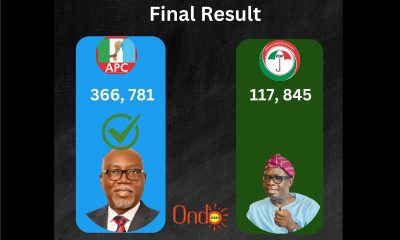
 News1 day ago
News1 day ago[UPDATED] [Breaking] APC’s Lucky Aiyedatiwa wins Ondo governorship election
-

 metro22 hours ago
metro22 hours agoNURTW: Agbede urges Baruwa to congratulate MC Oluomo, in spirit of sportsmanship
-
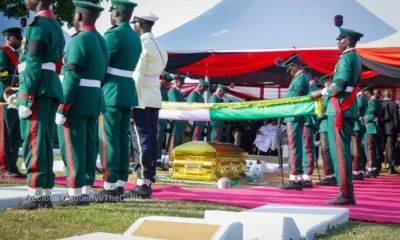
 News3 days ago
News3 days agoLate COAS Lagbaja gets CFR honour, buried amid tributes
-

 Sports2 days ago
Sports2 days agoHow much is Mike Tyson, Jake Paul getting paid for the fight?
-

 metro2 days ago
metro2 days agoNAF air strikes kill scores of bandits in Kaduna, free kidnap victims
-
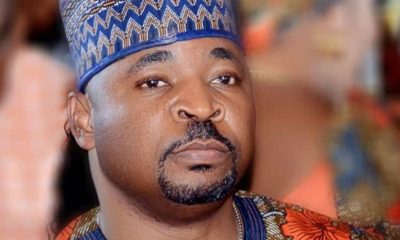
 metro2 days ago
metro2 days agoAppeal court affirms Baruwa as NURTW president, renders MC Oluomo election invalid
-
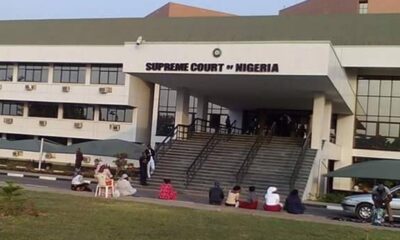
 metro1 day ago
metro1 day agoSupreme Court sacks Remo monarch in Ogun State





